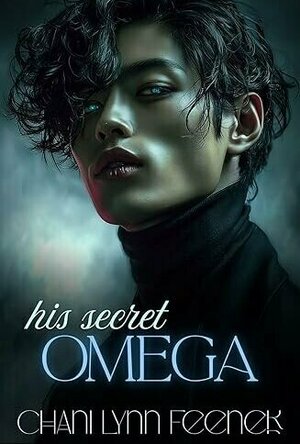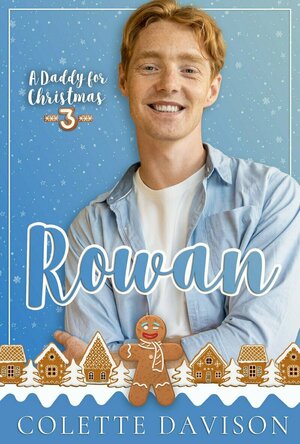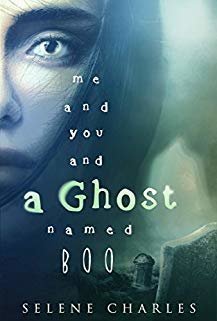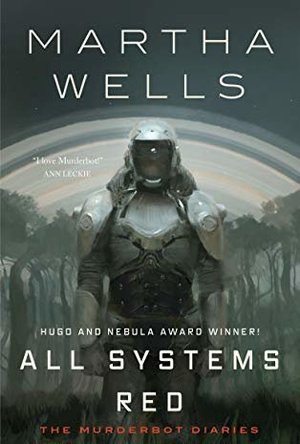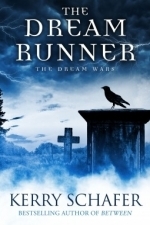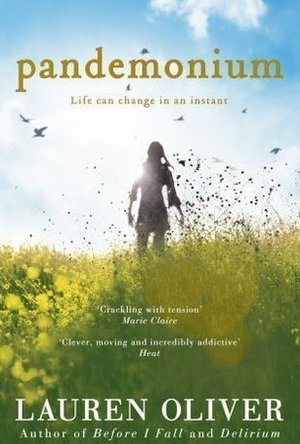Search
Search results
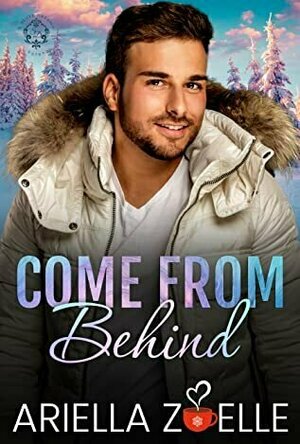
Come from Behind: An Age Gap Gay Romance (Suite Dreams)
Book
Is it possible that Tavish’s fender-bender on a snowy day will lead to him getting romantically...
Merissa (13690 KP) rated Warning! Deep Water! by A.L. Lester in Books
May 9, 2022 (Updated Jun 20, 2023)
WARNING! DEEP WATER is a gorgeous, gentle, slow-burn of a romance that takes place after WWII has finished -- when rationing was still a thing and same-sex relationships were illegal.
George served, as did Peter. George, unlike Peter, had a home and job to return to. Whether or not it was everything it should be is another story. Peter became a vagrant, sleeping rough and taking odd jobs. George finds Peter living in one of the greenhouses and takes him in. Wary at first, he gives him the space and time Peter needs to return to the land of the living.
The atmosphere of this book is perfect. You can visualise easily enough just how it must have been -- not only with recovering from the war but trying to have enough food, trying to find love, trying to live a 'normal' life.
I've given this novella a 5-star rating, which is exceedingly rare for me. I love a story I can get my teeth into and pass away the hours BUT I couldn't honestly give this book any less. It has everything I look for in a story, with enough detail and world-building to make it clear. Yes, I wanted more. Of course, I did! It's a brilliant story and over far too soon for my liking. Is that enough to knock off a star? Not for me.
This story gave me everything I wanted and left me wanting more. Highly recommended by me.
** same worded review will appear elsewhere **
* A copy of this book was provided to me with no requirements for a review. I voluntarily read this book, and the comments here are my honest opinion. *
Merissa
Archaeolibrarian - I Dig Good Books!
May 3, 2022
George served, as did Peter. George, unlike Peter, had a home and job to return to. Whether or not it was everything it should be is another story. Peter became a vagrant, sleeping rough and taking odd jobs. George finds Peter living in one of the greenhouses and takes him in. Wary at first, he gives him the space and time Peter needs to return to the land of the living.
The atmosphere of this book is perfect. You can visualise easily enough just how it must have been -- not only with recovering from the war but trying to have enough food, trying to find love, trying to live a 'normal' life.
I've given this novella a 5-star rating, which is exceedingly rare for me. I love a story I can get my teeth into and pass away the hours BUT I couldn't honestly give this book any less. It has everything I look for in a story, with enough detail and world-building to make it clear. Yes, I wanted more. Of course, I did! It's a brilliant story and over far too soon for my liking. Is that enough to knock off a star? Not for me.
This story gave me everything I wanted and left me wanting more. Highly recommended by me.
** same worded review will appear elsewhere **
* A copy of this book was provided to me with no requirements for a review. I voluntarily read this book, and the comments here are my honest opinion. *
Merissa
Archaeolibrarian - I Dig Good Books!
May 3, 2022
Merissa (13690 KP) rated His Secret Omega in Books
Nov 11, 2025
HIS SECRET OMEGA is a standalone story that had previously been released as His Secret Alpha. That one was sweet, cute, and steamy. This one has been rewritten, expanded to novel-length, and is a whole lot darker. And I thoroughly enjoyed them both!
Sky and Kian have a 'complicated' relationship - as in, Sky had a crush, didn't think anything had come of it, and needed to get over it. Kian, on the other hand, doesn't see situations and relationships in the same way most people do. He has claimed Sky, although Sky doesn't know it, and has decided now is the time to let him know.
This is a dark romance, so be prepared for some triggering scenes, right from the beginning. If you have triggers, this may not be the book for you. Personally, I liked the back-and-forth between Kian and Sky. I also liked how Sky was bigger than average, easy to get along with, and wasn't shy about calling Kian out when needed.
I did feel as though this was part of a series, though, and I wonder about the books for the other characters mentioned. Maybe this was a spin-off, maybe it's planned to be added to a series, I don't know.
I'm glad I read both the novella and this one. As already said, I enjoyed both and have no hesitation in recommending both of them too. Just ensure you're getting the right one for you!
** Same worded review will appear elsewhere. **
* A copy of this book was provided to me with no requirements for a review. I voluntarily read this book; the comments here are my honest opinion. *
Merissa
Archaeolibrarian - I Dig Good Books!
Nov 11, 2025
Sky and Kian have a 'complicated' relationship - as in, Sky had a crush, didn't think anything had come of it, and needed to get over it. Kian, on the other hand, doesn't see situations and relationships in the same way most people do. He has claimed Sky, although Sky doesn't know it, and has decided now is the time to let him know.
This is a dark romance, so be prepared for some triggering scenes, right from the beginning. If you have triggers, this may not be the book for you. Personally, I liked the back-and-forth between Kian and Sky. I also liked how Sky was bigger than average, easy to get along with, and wasn't shy about calling Kian out when needed.
I did feel as though this was part of a series, though, and I wonder about the books for the other characters mentioned. Maybe this was a spin-off, maybe it's planned to be added to a series, I don't know.
I'm glad I read both the novella and this one. As already said, I enjoyed both and have no hesitation in recommending both of them too. Just ensure you're getting the right one for you!
** Same worded review will appear elsewhere. **
* A copy of this book was provided to me with no requirements for a review. I voluntarily read this book; the comments here are my honest opinion. *
Merissa
Archaeolibrarian - I Dig Good Books!
Nov 11, 2025

Dragon's Mate Volume Three: Books 8-11
Book
Dragon shifters, an ancient clan under attack and unexpected fated mates. Discover the magic in this...
Merissa (13690 KP) rated A Daddy For Christmas 3: Rowan in Books
Dec 17, 2025
A DADDY FOR CHRISTMAS: ROWAN is part of the multi-author series of almost the same name. I'll let you figure that part out!
Damon is co-owner of a sex-toy business, usually run by his brother, Nigel. Damon took the week before Christmas off from work to avoid the stress, but Nigel had other ideas, so Damon got called in just before Christmas, and to top things off, also had to attend a charity fancy-dress ball in the middle of nowhere on Nigel's behalf. Not only did he not want to go, but that also meant he would spend time with Rowan, Nigel's driver, whom he was attracted to but was off-limits as an employee. Rowan, on the other hand, is prepared to use anything and everything to help him gain time with Damon, even a freak snowstorm.
This is a fast-paced novella, where most of the longing has already happened. Rowan was a little too bratty, too forceful/manipulative, for my liking, but it ticked Damon's boxes, so that's the main thing. There is plenty of heat, even in a snowstorm, that continues afterwards.
If you've read any of Ms Davison's Kinky Housemates series (highly recommended!), then you may recognise some of the names that pop up here. It was great to see them again!
Overall, this is a forced proximity, Scrooge-Christmas story with plenty of heat to keep you warm. Recommended by me.
** Same worded review will appear elsewhere. **
* A copy of this book was provided to me with no requirements for a review. I voluntarily read this book; the comments here are my honest opinion. *
Merissa
Archaeolibrarian - I Dig Good Books!
Dec 17, 2025
Damon is co-owner of a sex-toy business, usually run by his brother, Nigel. Damon took the week before Christmas off from work to avoid the stress, but Nigel had other ideas, so Damon got called in just before Christmas, and to top things off, also had to attend a charity fancy-dress ball in the middle of nowhere on Nigel's behalf. Not only did he not want to go, but that also meant he would spend time with Rowan, Nigel's driver, whom he was attracted to but was off-limits as an employee. Rowan, on the other hand, is prepared to use anything and everything to help him gain time with Damon, even a freak snowstorm.
This is a fast-paced novella, where most of the longing has already happened. Rowan was a little too bratty, too forceful/manipulative, for my liking, but it ticked Damon's boxes, so that's the main thing. There is plenty of heat, even in a snowstorm, that continues afterwards.
If you've read any of Ms Davison's Kinky Housemates series (highly recommended!), then you may recognise some of the names that pop up here. It was great to see them again!
Overall, this is a forced proximity, Scrooge-Christmas story with plenty of heat to keep you warm. Recommended by me.
** Same worded review will appear elsewhere. **
* A copy of this book was provided to me with no requirements for a review. I voluntarily read this book; the comments here are my honest opinion. *
Merissa
Archaeolibrarian - I Dig Good Books!
Dec 17, 2025
KittyMiku (138 KP) rated Me and You and a Ghost Named Boo in Books
May 23, 2019
Contains spoilers, click to show
Let me start off by saying before you read Me and You and A Ghost Named Boo, you should read Fae Bridge Over troubled Waters. It is a novella that is referenced quite a bit in the beginning of the book. You will be left completely clueless with out since in it, Mercer is almost sentenced to death. Don't worry, he doesn't die, but the whole case around it is just super fantastic to read. It was very short and maybe only 100 pages long and can take about an hour to read in a single sitting. But it was definitely needed to not leave you confused in the second book.
I found this book to be amazing. The characters just keep getting more and more dramatic, but you finally get to see romance bloom better between Mercer and Scarlett. Though I loved James a ton. There were tons of problems throughout the book. With the Alpha away to find out his fate, the Vampire Ball, and the darkness in deep within Scarlett, you are on the edge of your seat the whole book. I was pleased to have a ton of questions answered about Mercer's relationship with Death and how Scarlett is tied into everything. And to finally understand what the darkness is and how it feels within her was amazing to see.
I definitely enjoyed how all the conflicts and mysteries in the book really allowed you to see how Mercer's love runs deep within his soul and heart. I think that being able to have Mercer finally explain and do things to prove he loved Scarlett was extremely nice. Since he is constantly pushing her away, to see him finally be vulnerable in front of Scarlett precious and exciting. I also enjoyed how she fought back, trying to push him away to keep her safe, knowing she may lose him. Though I did find it to be extremely tense at times and even caused me to cry at times. Especially when there were several time where I feared how they would both end up dead because of how stupid I thought they were being.
I also enjoyed watching Scarlett try to figure out every thing while being handed confusing riddles that only made sense in the end. I really loved watching her confront her fear of losing Mercer and how much she was willing to do anything to keep him and those she cherished safe from harm's way. To see how she was willing to let the darkness that made her feel like she was going mad take over just enough to kill anything to protect those she loved. Even though, that darkness is what landed her in hot water with a Vampire clan, I found it exciting to finally learn about that darkness and how it is the daughter of Death and War and how even she was weak where War was considered. It was pleasant to see Scarlett be strong for both her darkness and herself to keep them both safe. I found it to be really exciting.
I would rate this book 5 stars out of 5 stars for how intense it would be. I found the story telling to be amazing and truly captivating. As I had mention it definitely progress nicely and answered quite a few questions while till leaving you with some follow up questions that allows you to want to more. I did not enjoy needing to track down a novella that was needed to read it after I thought I had all the books downloaded. However, even needed, I still found it be exciting and kept you wanting more. I kept sinking my teeth into this juicy tale. I suggest this series to everyone. It is truly amazing.
I found this book to be amazing. The characters just keep getting more and more dramatic, but you finally get to see romance bloom better between Mercer and Scarlett. Though I loved James a ton. There were tons of problems throughout the book. With the Alpha away to find out his fate, the Vampire Ball, and the darkness in deep within Scarlett, you are on the edge of your seat the whole book. I was pleased to have a ton of questions answered about Mercer's relationship with Death and how Scarlett is tied into everything. And to finally understand what the darkness is and how it feels within her was amazing to see.
I definitely enjoyed how all the conflicts and mysteries in the book really allowed you to see how Mercer's love runs deep within his soul and heart. I think that being able to have Mercer finally explain and do things to prove he loved Scarlett was extremely nice. Since he is constantly pushing her away, to see him finally be vulnerable in front of Scarlett precious and exciting. I also enjoyed how she fought back, trying to push him away to keep her safe, knowing she may lose him. Though I did find it to be extremely tense at times and even caused me to cry at times. Especially when there were several time where I feared how they would both end up dead because of how stupid I thought they were being.
I also enjoyed watching Scarlett try to figure out every thing while being handed confusing riddles that only made sense in the end. I really loved watching her confront her fear of losing Mercer and how much she was willing to do anything to keep him and those she cherished safe from harm's way. To see how she was willing to let the darkness that made her feel like she was going mad take over just enough to kill anything to protect those she loved. Even though, that darkness is what landed her in hot water with a Vampire clan, I found it exciting to finally learn about that darkness and how it is the daughter of Death and War and how even she was weak where War was considered. It was pleasant to see Scarlett be strong for both her darkness and herself to keep them both safe. I found it to be really exciting.
I would rate this book 5 stars out of 5 stars for how intense it would be. I found the story telling to be amazing and truly captivating. As I had mention it definitely progress nicely and answered quite a few questions while till leaving you with some follow up questions that allows you to want to more. I did not enjoy needing to track down a novella that was needed to read it after I thought I had all the books downloaded. However, even needed, I still found it be exciting and kept you wanting more. I kept sinking my teeth into this juicy tale. I suggest this series to everyone. It is truly amazing.
Jordan Binkerd (567 KP) rated All Systems Red (The Murderbot Diaries, #1) in Books
Aug 8, 2019 (Updated Aug 9, 2019)
Hilariously cynical and sarcastic narrator (2 more)
Bleak and dystopian universe
Complex characters and worldbuilding
An excellent novella
Meet Murderbot. Nobody else calls it that, of course - to most of the stupid humans it has to interact with, it’s just the security unit that the company made them bring along as part of the contract to safeguard the investment. But whereas most SecUnits are slaves to the central AI running whatever shoddy equipment the company sent along, Murderbot (as it thinks of itself) has hacked its own governor unit and can ignore whatever orders it wants, freeing it to stand around listlessly guarding stupid humans from dangers that are mostly non-existant as long as nobody does anything too moronic, devoting most of its energy to watching the terrabytes of serials that it downloaded from the entertainment feed last time they made contact. When things start to go wrong, initially it seems like just business as usual - life is cheap, and the contract for this equipment all went to the lowest bidder. But as incidents start to pile up, even Murderbot has to admit someone is trying to kill its humans. Even worse? Murderbot seems to have accidentally started to care about them…. Crap. It’s going to have to actually put in some effort this time around, isn’t it?
To put it simply, this is the best book I’ve read in quite a while. The entire thing is narrated by the extremely sarcastic, introverted, and misanthropic Murderbot, which makes for maybe the most engaging narrator since Harry Dresden. Don’t believe me? Read the first several pages on TOR's website. You know that thing with Charles Dickens where everything would be terribly depressing without his tongue-in-cheek style to bring the humor, rendering it impossible to abridge? No? I’m the only one to notice that? Oh well, moving on. This is like that - a dystopian wasteland of a society that is expanding across the cosmos using crappy low-budget equipment that’s liable to stop working on you when you most need it - to the point where it takes multiple incidents before the protagonists conclude that this isn’t business as usual. There’s also the moral ambiguity of the slavery-in-all-but-name of the Constructs that form the backbone of the labor force - sentient, at least without the governor unit, but forced to follow every whim of the humans they’re assigned to, even if those humans get bored and force them into gladiatorial combat or some such. These Constructs are described as androids, but are more accurately clone-based cyborgs fitted out for whatever task they’ll be doomed to for their term of service; part mechanical hardware, part expendable and easily-regrown meat, genderless and sexless unless designated for….that. And Murderbot? Murderbot just wants to be left alone, yet is a surprisingly deep and compelling character with a tragic backstory and motivations that are deceptively noble given its internal dialogue. Even its self-given name deserves a second look by the end of the book. I cannot recommend this book enough. And it’s a short read, clocking in at right about a hundred and fifty pages, technically more of a novella than a full-fledged novel. Now I just have to wait for whoever has the second book checked out from the library to give it back….
CONTENT: Some violence, not too gruesomely described. Some sexual references, including offhand mentions that some of the characters are in relationships that would be far outside the norm today (one character is said to have three romantic partners waiting together at home for them, for example). Murderbot also makes disparaging references to pleasurebots, but nothing explicit. Occasional R-rated profanity, but not too gratuitous.
To put it simply, this is the best book I’ve read in quite a while. The entire thing is narrated by the extremely sarcastic, introverted, and misanthropic Murderbot, which makes for maybe the most engaging narrator since Harry Dresden. Don’t believe me? Read the first several pages on TOR's website. You know that thing with Charles Dickens where everything would be terribly depressing without his tongue-in-cheek style to bring the humor, rendering it impossible to abridge? No? I’m the only one to notice that? Oh well, moving on. This is like that - a dystopian wasteland of a society that is expanding across the cosmos using crappy low-budget equipment that’s liable to stop working on you when you most need it - to the point where it takes multiple incidents before the protagonists conclude that this isn’t business as usual. There’s also the moral ambiguity of the slavery-in-all-but-name of the Constructs that form the backbone of the labor force - sentient, at least without the governor unit, but forced to follow every whim of the humans they’re assigned to, even if those humans get bored and force them into gladiatorial combat or some such. These Constructs are described as androids, but are more accurately clone-based cyborgs fitted out for whatever task they’ll be doomed to for their term of service; part mechanical hardware, part expendable and easily-regrown meat, genderless and sexless unless designated for….that. And Murderbot? Murderbot just wants to be left alone, yet is a surprisingly deep and compelling character with a tragic backstory and motivations that are deceptively noble given its internal dialogue. Even its self-given name deserves a second look by the end of the book. I cannot recommend this book enough. And it’s a short read, clocking in at right about a hundred and fifty pages, technically more of a novella than a full-fledged novel. Now I just have to wait for whoever has the second book checked out from the library to give it back….
CONTENT: Some violence, not too gruesomely described. Some sexual references, including offhand mentions that some of the characters are in relationships that would be far outside the norm today (one character is said to have three romantic partners waiting together at home for them, for example). Murderbot also makes disparaging references to pleasurebots, but nothing explicit. Occasional R-rated profanity, but not too gratuitous.
Annie Chanse (15 KP) rated The Dream Runner in Books
Dec 19, 2017
Contains spoilers, click to show
DEFINITELY DOES CONTAIN SPOILERS!!!!!!!!
Hmmmm.... I am of a mixed mind about this book. First of all -- my very first thought? It ended much too abruptly. I was reading right along, and all of a sudden, I turn the page expecting to see the next paragraph and see "Thank you so much for reading 'The Dream Runner' by Kerry Schafer!"
What what?!?!
Totally threw me off... completely. I realize this was a novella AND part of a series to boot, but still... very disappointing ending.
On the plus side of things, the premise for the book was pretty great. Custom-tailored dreams, made to order? Piping hot, fresh, and delivered in 40 minutes or less or its free? (Wait... is that pizza?)
Still. Very cool. I even really like the mystery surrounding the Dream Merchant. But Jesse is not a great protagonist. I felt no empathy for her at all. She suffered a terrible loss as a teenager, but her reaction to it is so far BEYOND extreme... she literally terrorizes her ex lover every night in her custom dream world because he killed her father in a complete freak accident to which he could not POSSIBLY have changed the outcome. Even at the end, when she has her big moment of honesty and self-realization... yeah. It actually made me like her even less.
Furthermore, some of the scenes in the book were very "out of left field" and felt very forced. There was no reason for them at all. It was as though the author thought, 'Hmmmm...maybe people would enjoy this more if I threw some obligatory sex in there. Or at least hint at it.' But it is very clumsily done and adds nothing to the story.
However, all that being said, this was by no means the worst book I have ever read. With a lot of work, I think this could potentially be turned around and made into a great series.
Hmmmm.... I am of a mixed mind about this book. First of all -- my very first thought? It ended much too abruptly. I was reading right along, and all of a sudden, I turn the page expecting to see the next paragraph and see "Thank you so much for reading 'The Dream Runner' by Kerry Schafer!"
What what?!?!
Totally threw me off... completely. I realize this was a novella AND part of a series to boot, but still... very disappointing ending.
On the plus side of things, the premise for the book was pretty great. Custom-tailored dreams, made to order? Piping hot, fresh, and delivered in 40 minutes or less or its free? (Wait... is that pizza?)
Still. Very cool. I even really like the mystery surrounding the Dream Merchant. But Jesse is not a great protagonist. I felt no empathy for her at all. She suffered a terrible loss as a teenager, but her reaction to it is so far BEYOND extreme... she literally terrorizes her ex lover every night in her custom dream world because he killed her father in a complete freak accident to which he could not POSSIBLY have changed the outcome. Even at the end, when she has her big moment of honesty and self-realization... yeah. It actually made me like her even less.
Furthermore, some of the scenes in the book were very "out of left field" and felt very forced. There was no reason for them at all. It was as though the author thought, 'Hmmmm...maybe people would enjoy this more if I threw some obligatory sex in there. Or at least hint at it.' But it is very clumsily done and adds nothing to the story.
However, all that being said, this was by no means the worst book I have ever read. With a lot of work, I think this could potentially be turned around and made into a great series.
graveyardgremlin (7194 KP) rated Dead Sexy Dragon (Dragon Heat, #1) in Books
Feb 15, 2019
I recently went back to NetGalley after a long duration and saw this was still sitting on my shelf. About two and a half years later. Oops. I sent it to my Kindle again and was surprised to see it show up. I figured it was high time I read and reviewed the story. Luckily it's about novella length, maybe shorter, so I thought it'd be fast and easy.
<b>Dead Sexy Dragon</b> is the first book in a paranormal series featuring shape-shifting (you guessed it!) dragons. Cora's the heroine fleeing from some trouble to her late brother's best friend and old Marine buddy, Stig Wyvern (I see what you did thar). Unfortunately for the both of them, it's his time of the month. Just kidding, but he goes through a nine-day period every three years where he's in heat. Sadly it's not called <a href="http://memory-alpha.wikia.com/wiki/Pon_farr"; target="_blank">pon farr</a>.
<IMG src="http://rs32.pbsrc.com/albums/d6/satilanna/spock_pon_farr_by_monicaaofthesand_zps9ne2inv0.png?w=480&h=480&fit=clip">;
Anywho, they've been hot for each other for years but neither of them knows it. Naturally. Pretty soon, like the next day, they have loads of sex after she finds out he's a dragon. The sexual interactions take up around 40% of the book and treads the line between romance and erotica. Some stuff happens that I don't want to give away, but Cora ends up in peril, and then Stig. It's a romance so obviously you know how it ends.
The story is pretty rushed, and the first couple of pages were a bit rough, but there are some interesting ideas here, so I just might pick up the next book and see where it's going. In the end, it didn't rock my socks, but it was an entertaining way to spend an hour or so.
Received from Netgalley for review.
<b>Dead Sexy Dragon</b> is the first book in a paranormal series featuring shape-shifting (you guessed it!) dragons. Cora's the heroine fleeing from some trouble to her late brother's best friend and old Marine buddy, Stig Wyvern (I see what you did thar). Unfortunately for the both of them, it's his time of the month. Just kidding, but he goes through a nine-day period every three years where he's in heat. Sadly it's not called <a href="http://memory-alpha.wikia.com/wiki/Pon_farr"; target="_blank">pon farr</a>.
<IMG src="http://rs32.pbsrc.com/albums/d6/satilanna/spock_pon_farr_by_monicaaofthesand_zps9ne2inv0.png?w=480&h=480&fit=clip">;
Anywho, they've been hot for each other for years but neither of them knows it. Naturally. Pretty soon, like the next day, they have loads of sex after she finds out he's a dragon. The sexual interactions take up around 40% of the book and treads the line between romance and erotica. Some stuff happens that I don't want to give away, but Cora ends up in peril, and then Stig. It's a romance so obviously you know how it ends.
The story is pretty rushed, and the first couple of pages were a bit rough, but there are some interesting ideas here, so I just might pick up the next book and see where it's going. In the end, it didn't rock my socks, but it was an entertaining way to spend an hour or so.
Received from Netgalley for review.
Kyera (8 KP) rated Pandemonium (Delirium, #2) in Books
Jan 31, 2018
My reaction at the end of the book: I just can't.
I didn't think that it was possible to end the second book with a bigger reveal/cliffhanger than Delirium - but Lauren Oliver shocked me. She slipped a little comment in that immediately made you wonder, "could it be?" I spent the next few pages fearfully reading, unsure if I wanted to know. Which ending would I prefer? All I could do was repeat no, no, no, over and over. This book is the definition of a book hangover. I immediately had to begin reading the third novel in the series.
The world building is just as immersive and well-done as the first. The author vividly describes the landscape and the new hierarchy in which Lena finds herself. This book no longer takes place in Portland, Maine but switches perspectives between the Wilds and New York City. We are also introduced to a new set of characters that help transition Lena into her new Wilds life.
Raven is the leader, young but formed under pressure like a diamond by the Wilds. Tack is her right-hand man, reliable but a bit unfriendly. She is surrounded by Hunter and Bram, tiny Blue, Grandma, Lucky, and many others. There are so many "invalids" in the Wilds that they are not all well-developed and unique characters. Those that are more important to the story are given the attention that they deserve. (Raven is also given a novella, which is a wonderful insight and in my opinion the best of the four novellas that accompany the series.) Lena must find her place and pull her weight - collecting water, tending the fire and checking for messages in the trees.
The style of switching perspectives from now to then continuously was a little off-putting at first. Before long, you get used to the style and are fully immersed in the story. Just as engaging as the first and highly recommended. Just a warning that there are more curse words in the novel than in the first.
I didn't think that it was possible to end the second book with a bigger reveal/cliffhanger than Delirium - but Lauren Oliver shocked me. She slipped a little comment in that immediately made you wonder, "could it be?" I spent the next few pages fearfully reading, unsure if I wanted to know. Which ending would I prefer? All I could do was repeat no, no, no, over and over. This book is the definition of a book hangover. I immediately had to begin reading the third novel in the series.
The world building is just as immersive and well-done as the first. The author vividly describes the landscape and the new hierarchy in which Lena finds herself. This book no longer takes place in Portland, Maine but switches perspectives between the Wilds and New York City. We are also introduced to a new set of characters that help transition Lena into her new Wilds life.
Raven is the leader, young but formed under pressure like a diamond by the Wilds. Tack is her right-hand man, reliable but a bit unfriendly. She is surrounded by Hunter and Bram, tiny Blue, Grandma, Lucky, and many others. There are so many "invalids" in the Wilds that they are not all well-developed and unique characters. Those that are more important to the story are given the attention that they deserve. (Raven is also given a novella, which is a wonderful insight and in my opinion the best of the four novellas that accompany the series.) Lena must find her place and pull her weight - collecting water, tending the fire and checking for messages in the trees.
The style of switching perspectives from now to then continuously was a little off-putting at first. Before long, you get used to the style and are fully immersed in the story. Just as engaging as the first and highly recommended. Just a warning that there are more curse words in the novel than in the first.

